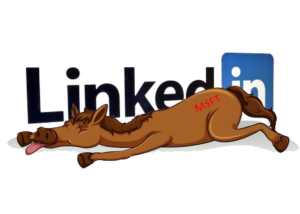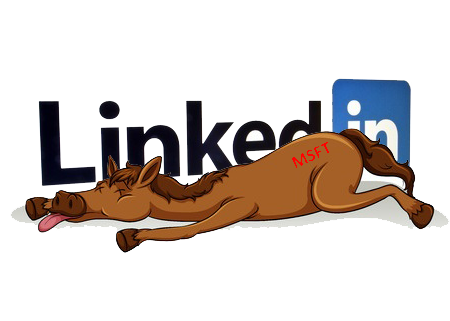
As an Internet Lawyer who represents ecommerce companies, I know there are deals to be had, particularly when you decided to buy an Internet business that is privately owned.
However, large publicly traded companies like Microsoft (MSFT) can rarely take advantage of these types of profitable acquisitions because the dollar amounts involved aren’t enough to create public relations buzz that boosts stock prices. Instead, these large tech companies are generally limited to buying other large businesses that generate media headlines and related changes to stock value (at least short-term) that make investors happy.
The Microsoft Mistake
That being said, Microsoft made a mistake that any existing or prospective small business owner can easily avoid when buying an online business.
What was the error?
Microsoft is purchasing a company that isn’t profitable. LinkedIn generates revenues but doesn’t really have a profitable business model because of international expansion costs and declining ad revenues. Corporate recruiting as a source of additional revenues is a dicey proposition given the ongoing slowdown of the global economy.
Some cheerleaders of the announced acquisition claim there will be “synergy” between the two companies and that this constitutes a “win” for Microsoft because of the access to LinkedIn’s data for its business users.
Yet if LinkedIn can’t turn a substantial profit on the roughly one-quarter of its 400 million accounts that are active, what’s the likelihood Microsoft is going to do so? Nil and none.
Companies this size change direction at the speed of a loaded oil tanker in choppy seas, not fast like a startup.
Even assuming Microsoft has an unlikely sound game plan to successfully monetize LinkedIn data in order to recoup the $26+ billion to be paid, the purchase price is simply ridiculous by any valuation standards.
Paying about 7 times annual revenues (not profits) is reminiscent of the Dot Com 1.0 bust circa 1999/2000. Frankly, this deal reeks like the Alibaba IPO and the AOL/Time Warner merger.
The conventional wisdom is that other large tech companies like Alphabet Inc.’s Google have to step up their game and make similar acquisitions.
Why?
When your competitor does something stupid, there’s simply no reason to follow like a lemming over the cliff just because some English lit major working as a tech pundit says you must do so.
As a practical matter, my clients often look at several potential Internet businesses to buy before even making an offer to purchase one. If the fundamental financials don’t make sense, there’s no reason to bail out a seller by acquiring an unprofitable venture. And it certainly doesn’t make sense to pay a premium to a seller for a business that might turn profitable in your hands but isn’t making money right now.
When You’re Ready to Buy an Internet Business
When you decide the time is right to buy an Internet company, before submitting a nonbinding letter of intent (LOI), be sure to discuss your possible acquisition with a qualified Internet business lawyer. The legal advice you’ll get can save you a lot of time and money.
Disclaimer – Stock imagery used for editorial purposes.
Neither Attorney Young nor his law firm makes any claim to
the intellectual property respectively owned by Microsoft and LinkedIn.

